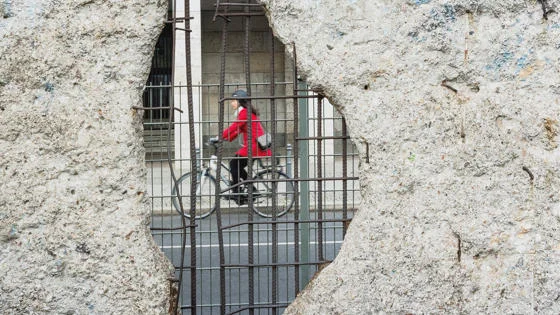“A sobering reminder”: important lessons from World War One

Contents
Every day, as we hear more about the devastating invasion of Ukraine by Russia, we are reminded how commemorating the past can help us try to make better decisions for the future.
Work by Professor David Stevenson, based in the Department of International History at LSE, tries to do just that. With over 40 years of experience researching the First World War, he has been involved in numerous projects to stimulate interest in the history of the conflict and strengthen understanding of its causes and consequences.
For one of these projects, Professor Stevenson was invited by the British Library to advise on a major collection marking the centenary of the Great War: Europeana 1914-1918 Learning Website.
The collection, which features over 500 items related to the War from postcards and photographs to propaganda material and news clippings, is linked to a series of research-based essays on the history of the First World War.
The Europeana1914-1918 project, led by the British Library in collaboration with 11 other European institutions, provides an English language web resource for First World War teachers in secondary schools across the globe. It provides an important insight for students about the War. And with over four million individual website visits to date, the impact of the project speaks for itself.
No war is good - but what makes a "bad" one?
It’s a sobering reminder… of how important it is to stop wars from starting in the first place; it’s very rare they achieve the objectives they set out to.
Due to his expertise on World War One, Professor Stevenson was recruited to advise on the editorial side of the collection. As well as giving guidance on the structure of the project and suggesting authors for supporting articles, he personally contributed seven essays on topics ranging from "Europe before 1914" to "Supply and Logistics" and "The War Effort at Home".
All of these had to be two sides of A4 in length and accessible to a secondary school audience, something which Professor Stevenson admits isn’t always easy for those more used to writing lengthy academic papers. However, he notes the critical importance of making the material available and approachable to a young audience, so they are equipped to learn about the War.
"We are seeing now that major wars can still happen," he says. "The First World War was the first modern industrial war. Millions of shells were manufactured, and millions of troops were enlisted - meaning it was fought on a much larger scale than 19th century wars. It’s also an emblematic example of what is sometimes called a ‘bad war’ – one which didn’t really achieve its aims, where the casualties were far worse than expected and where the outcome was indecisive."
"It’s a sobering reminder, or it should be, of how important it is to stop wars from starting in the first place; it’s very rare they achieve the objectives they set out to," he continues.
Commemorating our ancestors
Another reason Professor Stevenson feels it’s important for younger people to learn about past wars is from the perspective of family history. This involves having a better connection to our ancestors and making sure we commemorate them and their efforts during the War.
I had to keep an eye on whether the essays we were producing were too centred on the British experience…We wanted to present the experiences of all the countries involved.
"Almost every British family will have been impacted by the Great War," he says, noting that indeed his own interest in the period was sparked by family background. "My mother’s father, my grandfather, actively fought in the War from 1914 to 1918. He was injured twice and there were times my grandmother – his fiancée at the time – was worried that he wouldn’t come back – but he did!"
His grandfather on his father’s side was in the police force so contributed to the war effort from the home front, providing another perspective on the War.
Ensuring that all experiences of the War were captured in the project was important to Professor Stevenson, who was keen to ensure the articles reflected the myriad of people affected by the conflict. This included ensuring the essays highlighted the international impact of the War.
The importance of highlighting diverse experiences
"I had to keep an eye on whether the essays we were producing were too centred on the British experience, which is a danger with a project based in the UK. We were clear this shouldn’t happen, and we wanted to present the experiences of all the countries involved," he says. For example, the collection highlights the role of Indian soldiers in the War – over 50,000 of whom died fighting.
As the project progressed it became clear to Professor Stevenson that there was a wealth of material focusing on the second half of the War that wasn’t being fully utilised. With this in mind, he recommended a supplementary project concentrating on the latter part of the War and himself contributed a piece on "How the First World War Ended".
Although the collection was designed to commemorate the centenary of World War One, it continues to be an invaluable resource for schoolchildren, teachers, and researchers alike.
Going forwards, Professor Stevenson hopes to work on similar projects in the future but is currently concentrating on a new book on the origins of 20th century wars.
Professor David Stevenson was speaking to Charlotte Kelloway, Media Relations Manager at LSE.
Download a PDF version of this article




